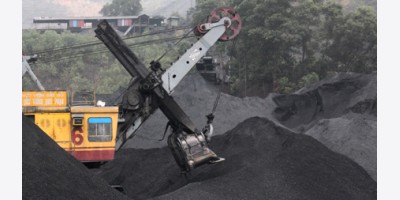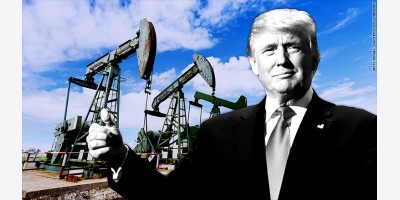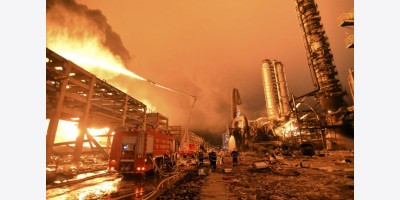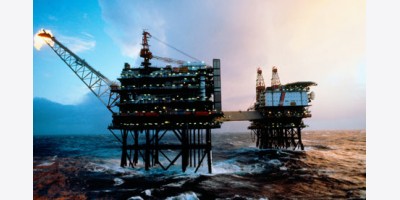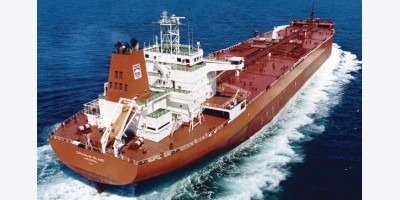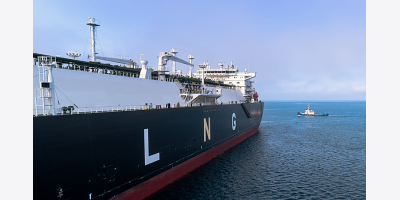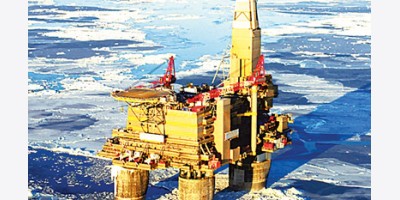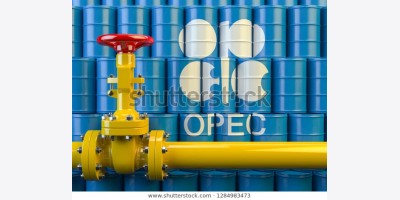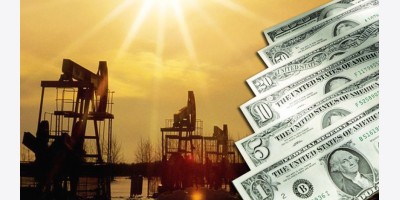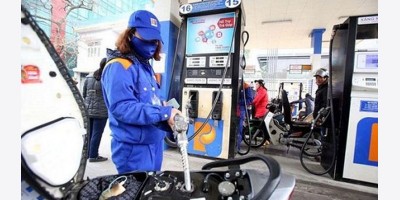The office of Russia’s prosecutor general aims to return Sistema’s majority stake in Russian oil producer Bashneft to federal ownership, fuelling market concerns about deterioration of the Russian investment climate and growing state control over the country’s oil sector.
Last week, Sistema’s board chairman Vladimir Yevtushenkov was charged with money laundering while buying Bashneft assets in the 2000s from companies that, according to the Russian authorities, may have illegally privatized them.
“The office of the general prosecutor is taking steps to return the illegally owned Bashneft assets to federal ownership,” the authority said Friday. “The Moscow arbitration court had satisfied the prosecutor general’s request ... to seize the Bashneft shares held by Sistema and [its subsidiary] Sistema Invest.”
Sistema and Sistema Invest jointly hold a total of 84.3% of voting shares in Bashneft and 73.8% of the oil producer’s shareholding capital, according to Bashneft data. Bashneft and Sistema are studying the situation, the companies said in separate statements later in the day.
So far, the legal proceedings have not had any impact on its operations, Bashneft added. “The company continues meeting all obligations to the state, its counterparties, employees and other interested parties,” Bashneft said.
Last week, Sistema said its acquisition of Bashneft assets was “legal and transparent” and it plans “to use all legal means to defend its position.” Russia’s economic development minister, Alexey Uliukayev, said Friday he “does not understand” the court ruling to seize Sistema’s stake in Bashneft, according to media reports.
Meanwhile, Rustem Khamitov, president of Russia’s Republic of Bashkortostan, the key operating area for Bashneft, welcomed the return of Bashneft’s shares to the state. “I absolutely support the decision of the prosecutor general,” he said in a comment broadcast by state-run Russia 24 channel.
“[Following the Bashneft privatization], the republic lost a giant oil processing, petrochemical, chemical, power and oil producing complex,” he said.
“It would be fair if the assets returned to the state.” Khamitov earlier in September said the region “did not receive a single cent” from privatization of the assets.
Some analysts have warned that by becoming a state-run entity Bashneft, currently Russia’s fifth-largest oil producer with output of around 350,900 b/d, is in danger of becoming less efficient.
“Although we cannot predict the outcome of the investigation, we believe that Bashneft’s operations are unlikely to suffer visibly,” analysts at Russia’s VTB Capital said in their Friday morning review. “However, we believe that the company ending up as part of a state-controlled entity would likely lead to efficiency deterioration.”
Russia’s national oil pipeline operator Transneft said Friday it expects an offshoot from the northwestern Sever diesel pipeline to Lukoil’s oil products terminal on the Baltic Sea port of Vysotsk to be completed in a year. Construction is set to start in November and will be financed by Lukoil, Transneft said on its website.
The two companies agreed to cooperate on the offshoot in May. Currently, oil products are shipped to Vysotsk by rail. Shipments via the 46-km offshoot, stretching to Vysotsk from the Baltic port of Primorsk, the final point of the Sever line, are to start at 1.5 million mt/ year and double to 3 million mt/year.
Vysotsk will only reach maximum capacity after the capacity of Sever is expanded in 2018, Transneft said. The pipeline capacity of Sever, or North, is set to be expanded to 25 million mt/year in 2018.
Transneft also aims to complete the first stage of the so called Yug, or South, pipeline between Tikhoretsk and the Black Sea port of Novorossiisk in 2016, when it plans to ship at least 6 million mt/year. The pipeline will subsequently reach the Volgograd refinery in 2018, and if there is sufficient financing and interest, its capacity may be increased to 9 million mt/year.
Earlier reports said Transneft plans to ship 10 ppm diesel along the South pipeline. Diesel is currently shipped to Novorossiisk by rail.
An offshore oil industry will inevitably be developed in Greenland, though it is not clear when, the country’s prime minister said this week.
“The one thing that we agree upon is that there is going to be extraction, it’s just a question of oil price and it’s a question of investment,” Prime Minister Aleqa Hammond said after an appearance at Brookings Institution, a Washington think tank.
“If Greenland thought that this is a totally outrageous idea, we wouldn’t do it.” Greenland, the world’s largest island, gained full control of the management and exploitation of its subsoil resources under a self-government law that came into force in June 2009.
Under that agreement, Denmark keeps its authority over Greenland’s foreign affairs, defense and monetary policy, but freezes its annual grant to Greenland at 2009 levels, a funding loss Hammond said Greenland hopes to compensate for through mining and offshore oil revenue.
Hammond said she expects offshore drilling to take off along her country’s west coast within Disko Bay, which is a roughly 90-minute flight north of Nuuk, Greenland’s capital.
East Greenland may offer the most promise of undiscovered oil, gas and gas liquids, US Geological Survey data showed, but drilling is expected to be concentrated on the country’s west coast due to its longer potential exploration season and comparably milder weather.
In 2007, USGS estimated that there was a potential 17 billion barrels of oil equivalent yet to be discovered in the West Greenland-East Canada basin, 31 billion boe in East Greenland and 3.3 billion boe in Northern Greenland.
These estimates are expected to be updated by USGS in the near future, according to Brookings. Hammond added that the drilling will be subject to “very strict regulations” and “closely monitored” by the government and said if she felt drilling posed an environmental risk, “we wouldn’t do it.”
While she declined to comment on a potential timeline for drilling to begin, the official Oil and Mineral Strategy unveiled by Greenland’s government in February aims for at least one exploratory well to be drilled by 2018 and at least one significant oil discovery within the next five years.
Angolan crude oil values have started to recover, with cargoes from the November loading program clearing steadily amid good demand, trading sources said Friday.
Healthy demand, especially from the European and Asia-Pacific markets, as well as a much shorter program for November have helped these grades clear, sources said.
A steady fall in the outright price of benchmark ICE Brent crude in the past week, along with an increase in refining margins, have also provided a boost to the Angolan crude complex.
Angola’s Pazflor grade was assessed by Platts at Dated Brent minus $3/barrel Thursday, the highest value seen June 25.
Similarly, Girassol was assessed at Dated Brent minus $1/b Thursday, the highest since July 29, according to Platts data.
All five stems of Angola’s newest grade, Clov, were heard sold out with good demand observed for this grade because of the lack of Girassol in the program.
There will be only one cargo of Girassol exported in November compared with five or six cargoes every month due to planned maintenance.
“Cargoes are moving on the market indeed. Angolan production is much lower in November versus October and there is only one Girassol, and Clov quality is similar to Girassol with prices lower,” said a trader.
“With only one Girassol stem [in the program] Clov has sold well and become quite competitive as it is similar in quality,” a second trader said. “It was being offered at Dated Brent minus $1.70/b last week. Then it was being offered at Dated Brent minus $2/b. And, after the lowering of offers it has sold very well,” he added.
Similarly, there was decent activity heard on grades like Cabinda, Hungo, Pazflor and Kissanje, with a good number of term deals heard on these grades too. Even the heavy Saturno grade has sold quickly, with five out of the six stems sold to China, traders added.
The Southeast Asian nation of Timor-Leste is looking to launch a long-delayed upstream bidding round next year to revive exploration interest in the hopes of boosting its oil revenues.
Up to 10 blocks are expected to be open for bidding and the pre-qualification round could take place as early as March next year, with the actual bid round happening from June 2015 to February 2016 and final awards scheduled for May 2016, Mateus Da Costa, Director of Exploration and Acreage Release at Timor-Leste’s petroleum regulator Autoridade Nacional de Petroleo, said Thursday at the Asia Upstream conference in Singapore.
The blocks will include acreage from Timor-Leste’s exclusive zone and the joint petroleum development area in the Timor Sea that the country administers with Australia. Da Costa noted, however, that the timeline was indicative as the legal framework for the tender still needed to be worked out.
Timor-Leste last held a bidding round in 2006, offering 11 blocks in its exclusive zone and four in the JPDA, although subsequent drilling - in ultra-deepwater in some cases — yielded no commercial discoveries.
“We expect that new exploration [will] hopefully kick in to maintain some of the [production] facilities already in place,” Da Costa said.
The only current exploration activity in the JPDA is by Italian Eni and Japan’s Inpex, who are carrying out geological and geophysical studies in block 11-106, awarded last year.
While Australia and Timor-Leste remain locked in negotiations to resolve their differences over an existing maritime treaty covering the undeveloped Greater Sunrise gas field in the Timor Sea, which could unlock significant earnings via a proposed LNG project, Dili only has two petroleum revenue sources at the moment.
The first is the Bayu-Undan gas and condensate field, which is producing between 50,000 b/d of oil equivalent and 60,000 boe/d while the second is the Kitan oil field, which is in decline. He said Kitan, in block 06-105, is now producing between 25,000 boe/d and 30,000 boe/d, down from a peak of 40,000 boe/d when output began in October 2011.
By Wael Mahdi, Jake Rudnitsky and Grant Smith Sep 26, 2014 5:18 PM GMT+0700
Saudi Arabia, the largest crude producer in OPEC, plans to keep output steady until the end of the year, a person with knowledge of the country’s oil policy said. It made the biggest cut in 20 months in August.
Output through the end of the year won’t differ much from August, when the country pumped 9.597 million barrels a day, according to the person, who isn’t allowed to be identified. The nation reduced production by 408,500 barrels a day last month, the most since December 2012, according to its most-recent submission to the Organization of Petroleum Exporting Countries. Demand will rise by the end of the year because of northern hemisphere winter, the person said.
Oil demand growth was the weakest since 2012 in the second quarter and industrialized nations’ stockpiles in August rose by more than twice the normal amount for the time of year, according to the International Energy Agency. Brent, the world’s most-active crude contract, is close to a two-year low. OPEC may cut its output target next year, the group’s secretary general said Sept. 16.
“It does make sense, even though prices are falling,” Gareth Lewis-Davies, a senior energy strategist at BNP Paribas SA, said by phone from London. “Globally, demand for crude is set to increase on a seasonal basis and as new refineries in the Middle East and China ramp up. If the Saudis cut, they would lose market share and that’s always a concern because it’s difficult to get it back.”
OPEC Target
Brent for November settlement is heading for a weekly loss this week, falling 1.4 percent since Sept. 19 to $96.97 a barrel at 11:11 a.m. in London on the ICE Futures Europe exchange.
OPEC’s daily output target could fall by 500,000 barrels to 29.5 million barrels in 2015, Abdalla El-Badri, the group’s secretary general, said at its secretariat in Vienna on Sept. 16. OPEC’s monthly report on Sept. 10 showed demand for its oil will drop to 29.2 million barrels a day in 2015 from 29.5 million this year.
Oil inventories in developed countries probably rose by 19.2 million barrels in August, the IEA said on Sept. 11. Second-quarter demand growth fell to 480,000 barrels day, compared with a year earlier, the first time in about two years that it’s been below 500,000 barrels a day, the IEA said.
Turkish President Recep Tayyip Erdogan said setting up a “secure zone” inside Syria is necessary to help refugees return after they fled Islamic State’s onslaught against Kurdish areas into Turkey.
Erdogan’s remarks to the World Economic Forum in Istanbul may anger Kurdish officials, who accuse him of siding with Islamic State against the Kurds in Syria to justify creating a buffer zone that would smother the autonomous region there. The Turkish government denies supporting Islamic State or any militant group.
“A no-fly zone and secure zone are absolutely necessary,” Erdogan said yesterday. He said that Turkey can’t stay out of the U.S.-led coalition seeking to destroy the al-Qaeda breakaway group.
The coalition struck Islamic State militants near the border with Turkey, where they have been battling Kurdish fighters for control of the town of Kobani, also known as Ayn al-Arab, the U.S. Central Command said Sept. 27. The clashes have forced thousands to flee into Turkey.
“Airstrikes by the international coalition are a positive development, but they just bombed a few places,” Orhan Sansal, the Kurdish mayor of Suruc, which lies across the border from Kobani in Turkey, said by telephone yesterday. “Islamic militants have even come closer to Kobani.”
The fallout from Islamic State’s onslaught against the Kurds in Syria is straining an alliance that had shown the potential to transform Turkey. Erdogan has taken steps shunned by past leaders to engage with Kurdish demands for wider rights, and pledged to end a three-decade guerrilla war. In turn, he’s received broad support in the largely Kurdish southeast of Turkey, where fighting has subsided during his decade in power.
Anti-Assad
Erdogan is seeking to “suffocate” the autonomous Kurdish region that emerged in Syria during the civil war, Sebahat Tuncel, a lawmaker from the pro-Kurdish People’s Democracy Party, said last week.
Turkey has been wary of the Syrian Kurds too. In an interview with Cumhuriyet newspaper published Sept. 24, deputy premier Yalcin Akdogan said the Kurds must denounce Syrian President Bashar al-Assad if they want a rapprochement with Turkey, which seeks Assad’s ouster.
Erdogan said yesterday that supporting anti-government forces in Syria was also necessary while confronting Islamic State militants. Airstrikes alone won’t be able to crush the group, he said.
U.S.-Arab Coalition
The U.S. has been attacking Islamic State targets in Iraq since August. It widened its military offensive against the group into Syria this month with the help of the United Arab Emirates, Saudi Arabia, Jordan, Bahrain and Qatar. The coalition is the biggest U.S.-Arab military venture since the 1991 war to liberate Kuwait from Iraqi occupation.
Airstrikes against Islamic State positions in Syria destroyed targets including four modular refineries, armed vehicles and tanks, the U.S. Central Command said in a statement yesterday. The U.S. says Islamic State uses the modular facilities in its oil-smuggling operations.
In Iraq, attacks near Baghdad and Fallujah targeted a safe house, checkpoints and a transport vehicle, the U.S. said.
Russia, viewed by the Obama administration as hostile to U.S. interests, has discovered what may prove to be a vast pool of oil in one of the world’s most remote places with the help of America’s largest energy company.
Russia’s state-run OAO Rosneft said a well drilled in the Kara Sea region of the Arctic Ocean with Exxon Mobil Corp. struck oil, showing the region has the potential to become one of the world’s most important crude-producing areas.
The announcement was made by Igor Sechin, Rosneft’s chief executive officer, who spent two days sailing on a Russian research ship to the drilling rig where the find was unveiled today. The well found about 1 billion barrels of oil and similar geology nearby means the surrounding area may hold more than the U.S. part of the Gulf or Mexico, he said.
“It exceeded our expectations,” Sechin said in an interview. This discovery is of “exceptional significance in showing the presence of hydrocarbons in the Arctic.”
The discovery sharpens the dispute between Russia and the U.S. over President Vladimir Putin’s actions in Ukraine. The well was drilled before the Oct. 10 deadline Exxon was granted by the U.S. government under sanctions barring American companies from working in Russia’s Arctic offshore. Rosneft and Exxon won’t be able to do more drilling, putting the exploration and development of the area on hold despite the find announced today.
“We have encountered hydrocarbons but it is premature to speculate on any potential outcome,” Richard Keil, an Exxon spokesman in Irving, Texas, said by telephone. “Our current focus is on completing the well and safely winding down operations consistent with our license with the U.S. government.”
Putin’s Ambition
The development of Arctic oil reserves, an undertaking that will cost hundreds of billions of dollars and take decades, is one of Putin’s grandest ambitions. As Russia’s existing fields in Siberia run dry, the country needs to develop new reserves as it vies with the U.S. to be the world’s largest oil and gas producer.
Output from the Kara Sea field could begin within five to seven years, Sechin said, adding the field discovered today would be named “Victory.”
The Kara Sea well -- the most expensive in Russian history -- targeted a subsea structure named Universitetskaya and its success has been seen as pivotal to that strategy. The start of drilling, which reached a depth of more than 2,000 meters (6,500 feet), was marked with a ceremony involving Putin and Sechin.
The importance of Arctic drilling was one reason that offshore oil exploration was included in the most recent round of U.S. sanctions. Exxon and Rosneft have a venture to explore millions of acres of the Arctic Ocean.
Oil Strategist
“Once the well is plugged, there will be a lot of work to do in interpreting the results and this is probably something that Rosneft can do,” Julian Lee, an oil strategist at Bloomberg First Word in London, said before today’s announcement. “Both parties are probably hoping that by the time they are ready to start the next well the sanctions will have been lifted.”
The stakes are high for Exxon, whose $408 billion market valuation makes it the world’s largest energy producer. Russia represents the second-biggest exploration prospect worldwide. The Irving, Texas-based company holds drilling rights across 11.4 million acres in Russia, only eclipsed by its 15.1 million U.S. acres.
Escalating Costs
Exxon Chairman and Chief Executive Officer Rex Tillerson is counting on Russian discoveries to reverse a trend of stalled exploration and escalating costs to pump crude and natural gas from the ground. Production from the company’s wells fell in 2012 and 2013 and is expected to be flat this year.
More drilling and geological analysis will be needed before a reliable estimate can be tallied for the size of the oil resources in the Universitetskaya area and the Russian Arctic as a whole, said Frances Hudson, a global thematic strategist who helps manage $305 billion at Standard Life Investments Ltd. in Edinburgh.
Sanctions forbidding U.S. and European cooperation with Russian entities mean that country’s nascent Arctic exploration will be stillborn because Rosneft and its state-controlled sister companies don’t know how to drill in cold offshore conditions alone, she said.
“Extrapolating from a small data sample is perhaps not going to give you the best information,” Hudson said in a telephone interview. “And because of sanctions, it looks like there’s going to be less exploration rather than more.”
Iceberg Hazard
In addition, the expense and difficulty of operating in such a remote part of the world, where hazards include icebergs and sub-zero temperatures, mean that the developing discoveries may not be economic at today’s oil prices.
The U.S. portion of the Gulf produces more than a million barrels a day and holds reserves of almost 6 billion barrels, according to data from the Department of Energy.
By Selcan Hacaoglu and Glen Carey Sep 28, 2014 5:43 PM GMT+0700
The U.S.-led military coalition struck Islamic State militants in Syria near the border with Turkey, where Kurdish fighters have been struggling to stop the group’s onslaught on a main Kurdish town.
A building and two armed vehicles belonging to the al-Qaeda breakaway group were destroyed near the Syrian town of Kobani, the U.S. Central Command said yesterday. At least three militants were killed, according to the U.K.-based Syrian Observatory for Human Rights, which monitors developments in the country’s civil war.
“Airstrikes by the international coalition are a positive development, but they just bombed a few places,” said Orhan Sansal, the Kurdish mayor of Suruc, which lies across the border from Kobani in Turkey. “Islamic militants have even come closer to Kobani,” he said by telephone today.
Expanding the coalition’s airstrikes to Kobani may offer reprieve to Kurdish fighters defending the town, also known as Ayn al-Arab. Islamic State’s onslaught on the territory this month forced thousands to flee across the border into Turkey.
Islamists Thrive
The U.S. has been attacking Islamic State targets in Iraq since August. It widened its military offensive against the group into Syria this month with the help of the U.A.E., Saudi Arabia, Jordan, Bahrain and Qatar. The coalition is the biggest U.S.-Arab military venture since the 1991 war to liberate Kuwait from Iraqi occupation.
Islamist militants are thriving in the Middle East from Iraq to Syria and Libya, taking advantage of a decline in state authority and one of the world’s highest youth-unemployment rates to recruit young fighters.
“Beating this organization isn’t as easy as many may expect,” Dubai’s ruler, Sheikh Mohammed Bin Rashid Al Maktoum, wrote in an editorial published today in several local newspapers. While the coalition can defeat Islamic State militarily, the fight requires “open, enlightened thought” to counter its ideology, he said.
Airstrikes in Syria also targeted oil refineries in the northern area of Tal Abyad, the observatory said today. The U.S. says Islamic State uses the modular facilities in its oil-smuggling operations.
By Katia Porzecanski, Nathan Gill and Boris Korby Sep 27, 2014 2:59 AM GMT+0700
The U.S. unit of Noble Group Ltd. (NOBL) loaned Ecuador’s state oil company $1 billion, then repackaged the debt into securities that it sold to bond investors this month, according to a prospectus for the notes.
The notes were issued through a Cayman Islands-based special purpose entity known as Noble Sovereign Funding I Ltd., according to the document, which was provided to Bloomberg News by a person who asked not to be identified because the offering was private. The securities due 2019 carried an interest rate of 5.63 percentage points above three-month Libor and were sold at 98.1 cents on the dollar, according to data compiled by Bloomberg.
Standard & Poor’s rated the notes B+, four levels below investment grade, saying the transaction relies on cash flows from the government as the guarantor of the underlying loan. The loan was made by Noble Americas Corp., according to the prospectus.
The press offices of PetroEcuador and the Finance Ministry didn’t respond to telephone and e-mail requests for comment on the transaction. Noble didn’t respond to telephone and e-mail messages left for investor relations official Stephen Brown and Joseph Limone, its general counsel for North America.
PetroEcuador, in charge of refining and selling the OPEC nation’s crude, has stepped up fuel imports in the past months as planned maintenance at its Esmeraldas refinery, the nation’s biggest, crimps local fuel supplies. The refinery began partial shutdowns on July 12 and output will be completely halted at the 110,000 barrel-per-day complex in October.
PetroEcuador has awarded Noble Americas at least two fuel-supply contracts in the last year and Noble is a frequent bidder on supply tenders organized by the company.
JPMorgan Chase & Co. helped arrange the loan securitization. Veronica Espinosa, a spokeswoman for the bank, declined to comment.
By Naomi Christie and Anthony DiPaola Sep 26, 2014 7:16 PM GMT+0700
The oil-refining wave in the Middle East is filling tankers to export the region’s processed fuels and driving freight rates to the highest for the time of year since 2008.
Countries from Saudi Arabia to the United Arab Emirates will process 8.8 million barrels a day of crude this year, almost 10 percent of global consumption, the highest in International Energy Agency estimates starting in 2006. Traders booked 19 percent more Persian Gulf oil products on tankers in the spot market this year than the same period in 2013, charter data compiled by Bloomberg show. The largest vessels get rates of more than $22,000 a day, the most for September in six years.
Crude exporters in the region are turning more of their oil into higher-value diesel and jet fuel while cutting dependence on imports of these products. Violence concentrated in Iraq and neighboring Syria isn’t restraining cargoes from elsewhere in the Middle East.
“Clearly this will have a huge impact on demand for product tankers, and in particular larger product tankers,” Eirik Haavaldsen, an Oslo-based analyst at Pareto Securities AS, said by phone Sept. 24. “We’ve started to see some impact already and rates are likely to strengthen.”
Rates Increase
Total cargoes of refined products, including some that are arranged on long-term charters, will expand 11 percent this year, according to data from London-based Clarkson Plc, the world’s largest shipbroker. The exports reflect a shift in shipments from a region that accounted for about 33 percent of global crude output last year, according to data from BP Plc. Representatives from Middle East nations will discuss those trends at the Asia Pacific Petroleum Conference in Singapore starting Sept. 30.
Large Range 2 tankers, the biggest oil-product carriers and as such the kind best suited to long-distance trades, earned $22,548 a day on Sept. 19 from transporting Saudi Arabian fuels to Japan, the most for the time of year since 2008, according to data from Clarkson.
They will earn $21,000 a day in the fourth quarter, according to the average of five analyst estimates compiled by Bloomberg. The vessels, also called Long Range, or LR, tankers, last earned that on a quarterly basis on the Saudi Arabia-Japan route at the end of 2012.
Torm Helped
Torm A/S (TORM), the biggest publicly traded company to specialize in transportation of refined petroleum cargoes, says the added Middle East refining capacity boosts its business because it means longer voyages. The industry’s most important demand measure is the ton mile, multiplying cargoes by distances.
“The product tanker market, including Torm, is benefiting from changes to the refining industry where new refining capacity in the Middle East is built close to the crude oil production but further away from the consumers,” Tina Revsbech, Copenhagen-based Torm’s head of tankers, said by e-mail on Sept. 24. “It generates increased ton/mile for product tankers.” LR2s account for 32 percent of its fleet’s total capacity.
Supply Doubles
While LR rates are strengthening, charter fees for other product tankers have declined because fleet growth over the past decade has been faster than the expansion in trade. The total supply of ships to transport gasoline, diesel and jet fuel almost doubled in the past decade, while the amount of cargo rose 64 percent, according to Clarkson data.
The Baltic Clean Tanker Index, a measure of the cost of shipping refined fuels, averaged 566 points since the start of the year, compared with 627 over the same period in 2013, according to data from the Baltic Exchange, the London-based publisher of shipping costs on more than 50 trade routes. It was at 554 yesterday.
A glutted order book for smaller medium-range tankers could cause traders to use those ships instead, cutting rates for LR vessels, Pareto’s Haavaldsen said.
Growth in exports may be curtailed because Persian Gulf energy-consumption is rising twice as fast the global average, meaning greater domestic demand, according to the U.S. Energy Department. And while overseas sales are expanding, demand for fuel shipments is shrinking both in China and Europe, which together account for about 32 percent of global oil consumption.
No Halt
Still, signs of weakening demand aren’t halting the surge in Middle East refining and shipments. Traders booked 90.86 million metric tons of oil-product cargo to load from ports in the region on the spot market so far this year, compared with 76 million tons during the same period in 2013, lists of charters collated by Bloomberg show.
Persian Gulf states will account for half the fuel-processing capacity starting globally in the next year, according to JBC Energy GmbH, a Vienna-based consultant.
Saudi Arabia is adding a 400,000 barrel-a-day export refinery at Yanbu on the Kingdom’s Red Sea coast. Abu Dhabi is doubling capacity at its largest refinery, a 400,000 barrel-a-day plant at Ruwais on the Persian Gulf.
“All the new refining capacity popping up in the Middle East is positive for LRs,” Erik Nikolai Stavseth, an analyst at Arctic Securities ASA in Oslo, whose recommendations on shipping companies returned 22 percent in the past year, said by phone Sept. 19. “You’re looking at a more-favorable environment.”
By Ewa Krukowska, Elena Mazneva and Brian Parkin Sep 27, 2014 1:23 AM GMT+0700
Russia and Ukraine moved closer to a preliminary natural gas agreement -- valid for this winter only -- as the European Union brokers a truce in a dispute that was set to disrupt flows during the coming months.
If approved, Ukraine will pay $3.1 billion by the end of the year for previously delivered supplies and Russia in return will provide at least 5 billion cubic meters of gas to Ukraine in the coming months, EU Energy Commissioner Guenther Oettinger said today in Berlin following talks with the Russian and Ukrainian energy ministers. National leaders of both countries must still sign off on the deal, Oettinger said.
“I’ve experienced tough but constructive negotiators over the past weeks,” Oettinger told reporters. “Avoiding gas shortages is in the interest of all those involved.”
Under the deal, Ukraine would pay $385 per 1,000 cubics meters (about $10.9 per million British thermal units) for gas for the next six months. The agreement is at the price that Russia’s OAO Gazprom (GAZP) had said was its final offer and at the highest level the EU had previously said should be paid.
The EU, which depends on Russian gas piped through Ukraine for about 15 percent of its demand, has been trying to broker an accord to maintain shipments since May. After the last round of three-way talks failed in June, Russia stopped supplies to Ukraine, citing $4.5 billion in unpaid bills at the time. The debt has now swelled to $5.3 billion, according to Gazprom, the world’s biggest natural gas producer.
Market Move
Oettinger said there wasn’t any agreement on the final price of gas supplied earlier to Ukraine because it’s the subject of a court dispute in Sweden between both nations. He said $3.1 billion is the minimum Ukraine would have to pay.
Gazprom erased declines of as much as 0.9 percent, closing up 0.1 percent in Moscow after the news from Berlin.
U.K. front-month natural gas reversed gains after Russia and Ukraine agreed the possible deal. Front-month gas dropped as much as 1 percent on ICE Futures Europe after gaining as much as 2.2 percent earlier today.
“The deal between Russia and Ukraine might mean more reliable supplies and lower prices in the winter,” Eugen Weinberg, head of commodities research at Commerzbank AG in Frankfurt, said by e-mail today.
Political Crisis
Concerns that a winter gas shortage may develop follow a political crisis between the former Soviet allies after Ukraine’s Kremlin-backed President Viktor Yanukovych was ousted amid street protests in February.
In April, Russia rolled back two price discounts amid a growing conflict in which Russian President Vladimir Putin annexed Crimea and a separatist insurgency erupted in eastern Ukraine. As a result, Russia raised the gas price for Ukraine from $268.50 to $485 per 1,000 cubic meters, a level higher than for any EU nation.
Oettinger said that the interim deal -- if approved by the governments of Russia and Ukraine -- runs only through March 2015. Ukraine would pay $2 billion of its gas debt by the end of October and $1.1 billion by the end of the year, he said. The countries are set to decide on the draft next week, he said.
Fredrik Erixon, director of the European Center for International Political Economy in Brussels, said that Putin’s strategic target is continued destabilization of Ukraine.
Ukraine Concerns
“People are fooling themselves if they believe you can sign a deal with Putin to sustain a predictable, commercial gas relationship for Russia, Ukraine and the EU,” Erixon said in a phone interview before the accord was announced. “Any deal signed will last a few weeks or months before the Kremlin finds a new reason to disrupt it.”
Ukraine, which was ready to pay $1.5 billion of debt next month, will decide on the issues by Sept. 30, Ukrainian Energy Minister Yuri Prodan told reporters in Berlin after the meeting. The country, which has $3.1 billion reserved for possible gas payments, hasn’t made any decision yet and still sees $268.50 as fair price, he said.
Russia will resume gas supplies to Ukraine after it makes the October debt payment, Energy Minister Alexander Novak told reporters in Berlin after the meeting. While issues remain, a “big step” was made toward an agreement, he said.
Gazprom sees its average price in Europe at about $350 this year. Next year, it may decline to $316.50, according to the Russian Economy Ministry.
Possible Disruption
A preliminary gas accord is needed, while a final agreement on the price is possible only after the international arbitration in Sweden decides on Gazprom and Naftogaz claims, Prime Minister Arseniy Yatsenyuk told reporters in Kiev today.
“Unfortunately, we haven’t reached agreement with the Russian side on the price mechanism,” he said.
While transit to the EU is so far unaffected, concern has grown among its governments over a possible disruption. Russia and Ukraine have been trading accusations of threats to EU-bound gas transit since July.
Poland and Slovakia, which have the capacity to supply Ukraine through reverse flow, said earlier this month Russia has been supplying less fuel than requested. Gazprom said it was fulfilling its contractual obligations and the European request was for additional supplies. That may have to wait until November as Russia fills its own storage to a record level, it said.
Russia has challenged the reverse gas flows. “We believe that reverse isn’t provided in the existing contracts between Gazprom and its consumers” in Europe, Novak said today.
Stress Test
Hungary suspended natural gas deliveries to Ukraine yesterday for an “undetermined time” due to a projected “significant increase” in domestic demand, the Hungarian gas transit company FGSz said in an e-mailed statement.
The 28 EU governments agreed in June to take steps to increase supply security and are preparing for a stress test of Europe’s energy system to help overcome a potential cutoff in the 2014-15 winter.
Short-term supply interruptions through Ukraine transit routes this winter poses significant challenges, in particular for Bulgaria, Romania, Hungary and Greece, the European Commission said in an energy security study in May. If all supplies from Russia are disrupted from October to March, Finland, Poland, Czech Republic, Slovakia, Croatia, Slovenia, Lithuania, Latvia and Estonia are also exposed, the document showed.
Countries including Slovakia and the Balkan nations already suffered from disruptions of Russian gas supply via Ukraine in freezing temperatures in 2006 and 2009. Should temperatures remain within season norms this year, the EU would probably weather a disruption of flows via Ukraine, according to analysts including Citigroup Inc.
A final gas agreement, which means a new contract, is only likely “as part of a comprehensive reset of relations between Moscow and Kiev and that may only come after the status of eastern Ukraine is resolved,” Chris Weafer, a founder of Macro Advisory in Moscow, said by e-mail. “Clearly that is a long way off.”
BERLIN, Sept. 26 (UPI) -- Trilateral natural gas talks Friday in Berlin have resulted in temporary relief for Ukraine, delegates at the conference confirmed.
Russian, Ukrainian and European officials met in Berlin in an effort to avert a gas crisis for the upcoming winter.
Russia meets about a quarter of the gas needs for Europe, though the bulk of that volume runs through the Soviet-era transit system in Ukraine. Contractual woes in 2006 and 2009 forced Russian gas company Gazprom to cut gas supplies through Ukraine and European leaders are worried about a repeat of the crisis given ongoing acrimony between Kiev and Moscow.
European Energy Commissioner Gunther Oettinger said during August talks with Russian Energy Minister Alexander Novak an interim price, repayment of unpaid bills and fulfillment of transit obligations must be part of an interim solution.
Oettinger said at the conclusion of Friday's talks Ukraine would get a modest discount in price and Ukraine would pay back $3 billion in unsettled debt.
Novak said Friday a gas discount for Ukraine may extend for six months. Gazprom had offered Ukraine earlier discounts, though Kiev brushed off the deal amid ongoing political concerns about Russian influence in the region.
Gazprom Chief Executive Officer Alexei Miller last week said Russian gas would account for 64 percent of European imports this year, up 17 percent from four years ago.
"The European market is No. 1 for us" he said.
Norway sends nearly all of its gas exports to Europe.
BRUSSELS, Sept. 26 (UPI) -- Norwegian Energy Minister Tord Lien said his country has the resources and infrastructure in place to serve as a steady partner in the European energy sector.
Lien met in Brussels with European Energy Commissioner Gunther Oettinger during a bilateral energy conference.
Lien said less than 30 percent of the natural gas available on the Norwegian continental shelf has been produced, meaning Norway can be a reliable partner for the European community for decades to come.
"We have both the infrastructure and the resources to remain a stable supplier of natural gas to Europe for decades to come," he said in an address Thursday. "Our production has grown more or less uninterrupted for 20 years."
Norway last year sent 92 percent of its oil exports and at least 98 percent of its gas exports to European markets.
With Europe looking to diversify an energy sector dependent on Russia, Oettinger said Norway stands to reap the benefits.
"Norway is an essential piece in the puzzle," he said.
Norway and Russia are the top natural gas exporters to the European Union. The Norwegian government said its gas accounts for 20 percent of the European market.
TEHRAN, Sept. 26 (UPI) -- Members of the Organization of Petroleum Exporting Countries should take efforts to stem the decline in crude oil prices, Iran's oil minister said Friday.
Oil prices have been on a steady decline despite tensions in the oil-rich Middle East and eastern Ukraine, which resulted in sanctions pressure on global production leader Russia. Some rebounds were seen this week because of U.S. domestic supply concerns, though overall prices remained below the $100 per barrel threshold.
Iranian Oil Minister Bijan Zangeneh issued an appeal to fellow OPEC members calling for action to stem the tide of declines.
"Given the [ongoing] downward trend of the oil prices, OPEC members should make efforts to offset their production to keep the prices from further instability," he said in a statement.
OPEC members have reacted to production trends in North America, where gains from shale deposits have suppressed imports in some regional markets.
Iran, meanwhile, has lobbied for a larger role in the oil market because of progress made during multilateral nuclear negotiations. Zanganeh said any new developments on the nuclear front are unlikely to impact oil markets.
"One cannot say that this issue will necessarily result in the oil price decline," he added. "I think there is enough wisdom in the world oil market to avoid oil price instability."
STAVANGER, Norway, Sept. 26 (UPI) -- The Norwegian government confirmed Friday a natural gas discovery was made by Norwegian energy company Statoil in the Johan Castberg field in the Barents Sea.
Statoil finished drilling a wildcat well, a well drilled into an area not previously known to contain oil or natural gas, in the Johan Castberg area of the Barents Sea.
"Preliminary estimates place the size of the discovery at between 175 billion and 500 billion standard cubic feet of recoverable gas," the Norwegian Petroleum Directorate, a national regulator, said in a statement Friday. "The discovery will be subject to further evaluation."
The well was drilled using the Spitsbergen rig, leased by Statoil from rig company Transocean.
More than a dozen Greenpeace demonstrators took part in a protest against Statoil's drilling plans for arctic waters by boarding the Transocean rig in May. Around half of them surrendered their campaign voluntarily and Statoil said the seven activists who remained behind were arrested by Norwegian police.
In terms of oil, Statoil in July said Johan Castberg had less new oil resources than expected.
API considering policies for safer rail transit.
In May, API said a study published by the North Dakota Petroleum Council eliminates some of the speculation surrounding Bakken crude. NDPC said Bakken crude oil "poses no greater risks than other flammable liquids" authorized for rail transport, though concerns have been raised by federal regulators
"Proper testing, classification and handling are important when shipping any material subject to PHMSA regulations, and crude oil is no exception," API President Jack Gerard said in a statement Thursday.
API published its own set of recommendations for testing and classification of crude oil for rail shipments, which includes a unique crude oil sampling and testing program.
U.S. regulators in January issued an advisory warning Bakken crude oil may be more prone to catch fire than other grades. For rail itself, the Department of Transportation in July called for the eventual elimination of older rail cars designated DOT 111 used to ship flammable liquids, "including most Bakken crude oil."
"This particular standard is one element of a much broader approach to safety improvement," Gerard said.
By Ulf Laessing
(Reuters) - Libya's elected parliament will hold its first talks on Monday with members from an opposing city linked to a rival assembly, lawmakers said, starting a badly needed dialogue as the oil-producing country teeters on the edge of collapse.
The House of Representatives, the internationally recognised parliament elected in June, was uprooted last month when an armed group from the western city of Misrata took control of the capital Tripoli and set up its own assembly and cabinet there.
The meeting in Ghadames, a southern town near the Algerian border, was brokered by the United Nations in an attempt to prevent the country from descending into anarchy and civil war, three years after the uprising that ended the 42-year-rule of Muammar Gaddafi.
Faraj Hashem, spokesman for the House of Representatives which has moved to the remote eastern city of Tobruk, said the talks would include only elected deputies from Misrata, who have boycotted the house's sessions since it was convened in August.
"We welcome the dialogue but it will be (only) with the deputies who have boycotted the previous sessions," he told Reuters.
There would be no talks with armed groups from Misrata or other parts of Libya which have reinstated the country's previous parliament, he said. "This is a principal condition."
Tripoli lawmaker Ali Tekbali said he expected little from the meeting, brought about by contacts in the past few weeks between U.N. Special Libya envoy Bernardino Leon and the opposing factions.
"I don't think it will achieve much because the talks will not include the militias. The deputies have no power over them," he said.
Other lawmakers and diplomats welcome the prospect of talks in the vast desert country, where the rebel groups that ousted Gaddafi are now fighting for power and a share of oil revenues.
They hope that since Misrata-members from the house are indirectly linked to the rival parliament in Tripoli the meeting will start a broader political dialogue, not just about the House of Representatives.
A previous U.N. initiative for a national dialogue, planned before fighting in Tripoli escalated in July, had failed amid a public outcry, with the world body coming under criticism for alleged interference.
Hours before details of the meeting emerged, Prime Minister Abdullah al-Thinni and his cabinet took the oath of office after lawmakers approved the line-up.
Last week the House of Representatives agreed on a second cabinet list after rejecting an initial 16-member one as too large.
The new cabinet has 13 ministers including three deputies for Thinni and no oil minister. The vital oil sector will be run by state firm National Oil Corp (NOC), as it was under Gaddafi.
Thinni, a former career soldier, has been prime minister since March but had resigned after a June election. Lawmakers then asked him to again form a new government.
(Reporting by Ulf Laessing and Feras Bosalum in Benghazi; Editing by Mark Trevelyan)
28.09.2014 - 22:41
On September 21, Gazprom Neft, the oil arm of Russian state gas company Gazprom, said the second tanker of oil taken from an Arctic field was delivered to European customers. Gazprom Neft confirmed a tanker filled with 200,000 barrels of oil was shipped to markets in northwest Europe last week. It was the second tanker of oil delivered from the Novoportovskoye field at the Yamal Peninsula.
Gazprom Neft said the oil is designated as Novy Port, which it said was superior in quality to the global benchmark, Brent. “A third tanker is currently being prepared for shipment,” the company said in a statement.
The oil from Novoportovskoye field was first exported by sea in August 2014. A 103-kilometre oil pipeline connects the field to Cape Kamenny, where a large terminal for year-round oil deliveries will be built.
The Novoportovskoye field currently has production capacity of 600,000 tonnes per year, which will increase further.
The recoverable reserves of C1 and C2 of the Novoportovskoye field hold over 250 million tonnes of oil and condensate, as well as more than 320 billion cubic metres of gas (including Paleozoic deposits).
The field is located on the Yamal peninsula, distant from transport pipeline infrastructure.
Changes in global weather patterns are leaving parts of the arctic region ice-free for longer periods of time. Gazprom Neft said it confirmed in 2011 that using a nuclear-powered icebreaker would facilitate transportation of oil from the port on the northern peninsula, where pipeline infrastructure is lacking.
DUBAI, 12 hours, 58 minutes ago
Saudi Arabia is likely to keep its oil output steady throughout the rest of the year as world oil consumption is expected to rise and domestic demand for crude eases during the winter.
Oil prices have slid on ample supplies and concern about weakening demand on slowing economic growth in Europe and China, raising the question of whether Saudi Arabia will curb output to support prices.
But industry sources in Saudi Arabia said the kingdom will continue with its basic policy of supplying the market according to needs.
Riyadh had always said that it adjusts oil supply to accommodate its customers and not to drive the price.
The top exporter and holder of the world's largest spare capacity cut its output by around 400,000 barrels per day (bpd) in August.
But the amount of crude supplied to the market - both domestically and for export - inched up to 9.688 mbpd, compared to around 9.66 mbpd in July, indicating no change in Saudi oil supply policy.
"As we approach winter and with the end of the refinery maintenance season, global demand is likely to pick up therefore Saudi oil production is not expected to see a major change," an industry source said.
"Output may fluctuate according to the customers' needs and market circumstances," the source said, adding that production in September for the Opec heavyweight is expected to remain steady.
Industry observers see Saudi crude output at around 9.5 million to 9.6 mbpd in the coming months when seasonal demand picks up. Saudi exports will probably stay around 6.9 million to 7.1 mbpd until December.
Oil prices rose to around S97 a barrel, but were not far from the lowest since July 2012 reached the previous day as abundant supply and a strong dollar weigh on prices. Libya's oil output has risen in recent weeks, while Iraq continues to produce without interruption despite the fighting there.
But Saudi oil minister Ali Al Naimi has played down concerns about the fall in prices below $100 and said it was too early for Opec to act. Other Gulf oil ministers and delegates have bet on expected rising demand as winter approaches.
"I would expect relative output stability from Saudi Arabia, unless of course we see further or renewed large-scale disruptions in Libya or elsewhere," said analyst Samuel Ciszuk of the Swedish Energy Agency. -- Reuters
Vienna, 12 hours, 38 minutes ago
Rosatom, the atomic energy corporation in Russia, has signed a project development agreement with Jordan Atomic Energy Commission to build a 2,000-MW nuclear power plant in the Zarqa province of Jordan.
The project phase, which has now started, will lead to a contract for nuclear power plant construction, which is likely to be signed in two years, said the statement from the Russian firm.
"The agreement provides for design of the water cooling system, feasibility study, oversight of the site evaluation process, and environmental impact assessment," stated Khaled Toukan, the chairman of the Jordan Atomic Energy Commission, after signing the deal with Dzhomart Aliev, the CEO of Rosatom Overseas.
These activities, which are fully funded by the Jordanian Government, will have to be completed within two to three years, he added.
Sergey Kirienko, the CEO of Rosatom, lauded both the Russian and Jordanian specialists for finding a very good site to build the nuclear power plant which features low seismic impact and good geology.
"The Jordanian government has managed to find a solution for the plant water supply. We have made analysis and can confirm that this is an absolutely feasible water supply solution," he added.-TradeArabia News Service
ABU DHABI, 12 hours, 46 minutes ago
Demand for electric energy in GCC will rise during the next five years by about 43 per cent because of residential and industrial investments that reach $283 billion, said the organisers of an upcoming power and water summit in Abu Dhabi.
Power-Gen Middle East 2014, set to be held from October 12 to 14 in Abu Dhabi National Exhibition Centre will review the most significant renewable energy projects in Emirates and Arabian Gulf area, added Nigel Blackaby, event director.
He mentioned in an interview in Abu Dhabi that the conference and exhibition that hosts delegates and international experts in the fields of electricity and water from more than 65 countries will discuss energy challenges, future projects and the high demand for energy in the next stage.
He estimated the annual demand for electric energy in GCC to be about 8.3 per cent, referring that GCC is willing to increase electricity production by 156 gigawatts during the next five years to be added to current energy amount of 234 gigawatts.
Blackaby also emphasized that GCC is still the world most attractive area for global investments in energy industry.
In addition, he said that this area is considered the most important for the energy industry, and more capital will flow in order to participate in constructing huge projects because of the state of the stability witnessed.
He mentioned that the huge economic growth and the rise of demand for energy projects in Gulf area will attract more investors.
He predicted that renewable energy in the Mena market will witness a growth from 9 to 11 per cent until 2020, based on estimations from Frost & Sullivan, a growth partnership firm.
"Solar energy and wind energy witnesses remarkable growth that reaches 9 per cent annually in Middle East, which proves that countries in the region are serious about finding new power sources,” he added.
Blackaby also explained that the world interest in the Middle East is associated to the rise of demand in the future of the electricity sector, which is relatively estimated at 7 per cent annually, and which is likely to require an investment of $283 billion in the overall power sector in the region from 2014 to 2019.
He stressed on the importance of cooperation with Abu Dhabi Tourism and Culture Authority's Convention Bureau to organize this event which is expected to host more than 4,000 participants. – TradeArabia News Service
By Andy Tully | Sun, 28 September 2014 00:00 | 0
Benefit From the Latest Energy Trends and Investment Opportunities before the mainstream media and investing public are aware they even exist. The Free Oilprice.com Energy Intelligence Report gives you this and much more. Click here to find out more.
International sanctions over Russia’s aggressive acts in Ukraine and a lack of structural economic reforms domestically has led the World Bank to cut its estimate of the country’s growth in 2015 and declare it at the “threshold of recession.”
In its biannual report on Russia issued Sept. 24, the Bank said Russia’s gross domestic product would grow by no more than 0.3 percent next year, and could even shrink if the crisis in neighboring Ukraine worsens and triggers further sanctions by the European Union and the United States. The Bank said in 2016, Russia’s GDP will rise at most by 0.4 percent.
Russia’s own forecast is more optimistic, with a growth estimate of 1.2 percent in 2015 and 2.3 percent in 2016. The World Bank’s economist for Russia, Birgit Hansl, addressed that issue in comments to reporters in Washington, where the Bank is headquartered.
“We don’t believe that investment growth is picking up as much as the government believes,” Hansl said. “Their assumption is that monopolies will be investing.”
In fact, according to the report, restrictions on access to Western financing by Russian companies and banks are “likely to have already (negatively) affected investment decisions.”
Hansl said the sanctions also are likely to undermine consumer activity, a major economic driver in Russia.
The report concludes that the impact of the sanctions likely will become more apparent in 2015 and “may lead to a period of near [economic] stagnation.”
Russia has few options. Even if Western sanctions were repealed fairly soon, the economy would only inch upward by 0.9 percent in 2015, and 1.3 percent in 2016. And in the Bank’s view, any increase in geopolitical tensions would actually cause the economy to contract.
“The economy is at the threshold of recession and will remain there for a while," Hansl said.
The Bank found that consumer activity in Russia is already declining. The country’s economic growth was near zero from January through June, even as the Kremlin issued rosy near-term economic forecasts.
The Kremlin can maintain macroeconomic stability even with the sanctions in place, the Bank said, but that wouldn’t spur growth. And even that stability is threatened unless Moscow maintains a prudent fiscal policy and Russia’s central bank follows through on its promise to allow the ruble to find its own value on the world currency market.
The Bank said it doesn’t expect substantial economic reforms anytime soon.
If the Kremlin opts for government spending as a stimulus on the economy, it also would fuel inflation and lower the value of the ruble, further harming the country’s investment climate. Whatever the Russian government does, the Bank said it expects continued downward pressure on the ruble, which already has lost 16 percent of its value in the past year.
By Andy Tully of Oilprice.com
KUWAIT CITY, Sept 26: In August 2014, Kuwait’s oil production was at 2.89mln barrels per day, from July’s 2.88mln figure. Kuwait’s oil production picked up slightly in the past two months from May and June’s level of 2.80mln. Average oil production in the past three months was at 2.86mln barrels for the months of June, July and August 2014.
Kuwait has increased its oil production capacity to 3.3mln barrels of oil a day (bpd) and is hoping to reach 3.5mln bpd in 2015. Kuwaiti officials have previously said that capacity in the OPEC member state was around 3.1-3.2mln bpd. Kuwait hopes to reach 4.0mln bpd of capacity in 2020, despite slow progress in developing new projects.
Build
Tenders to build Kuwait’s fourth refinery, Al Zour, have been extended after delays and political opposition in the past. Mohammed Ghazi al-Mutairi, chief executive of state-run refiner Kuwait National Petroleum Company (KNPC), said closing dates for tenders to build the refinery have been extended until November 2014 and January 2015 after the companies involved asked for more time. Al Zour refinery, one of the biggest in the Middle East, is expected to start operations by May 2019 after closing dates for the tenders have been pushed back by few months, added al-Mutairi.
The Al Zour refinery will produce oil products such as diesel, kerosene and naphtha for export and low-sulphur fuel oil for domestic power stations. It is a major part of Kuwait’s economic development plan to upgrade its infrastructure, is expected to cost around KWD4bln ($14.18bln).
Kuwait’s plans to upgrade and expand two of its existing refineries, known as the Clean Fuels Project, is also part of the country’s economic development plan, which has been delayed by politics in the past. Under the project, the capacity of Mina al-Ahmadi refinery will drop to 347,000 bpd from 466,000 bpd, while Mina Abdulla refinery’s capacity will rise to 454,000 bpd from 270,000 bpd now. The 200,000 bpd Shuaiba refinery will be shut down.
Kuwait’s oil production is in line with the recent OPEC oil output and other member countries. OPEC crude oil production increased to a one-year high in August 2014, led by surging output in Nigeria, a Bloomberg survey showed. Production by the 12-member Organization of Petroleum Exporting
Countries rose by 891,000 barrels a day to 31.03 mln, according to the survey of oil companies, producers and analysts. July’s total was revised 80,000 barrels a day lower to 30.14 mln because of changes to the Nigerian and Iranian estimates. Nigeria, Saudi Arabia and Angola led gains as new deposits came online, security improved and field maintenance programs ended. Iran and Venezuela were the only members to record production declines.
State-run Kuwait Petroleum Corporation (KPC) and China’s Unipec signed a landmark deal on Friday, Aug 22 that will almost double crude oil deliveries over a decade, the biggest-ever contract in KPC’s history. Under the agreement, KPC will provide Unipec crude oil, starting from 2014, with the volume exepeted to reach 300,000 barrels per day (bpd). KPC reached the historic 10 year deal with Unipec, the trading arm of China’s top refiner Sinopec, to replace the 160,000-170,000 bpd supply contract that had lapsed. KPC will export 300,000 barrels per day (bpd) of crude oil under the agreement, which would amount to 15 percent of Kuwaiti petroleum exports.
Two Indian companies and one British firm emerged as the main winners of Kuwait’s oil contracts in July and August 2014, grabbing nearly $2.3bln out of the total $4bln awarded during that period. The government-owned Kuwait Oil Company (KOC) signed a total 40 contracts with around $4bln during the month, the highest deal in two months over the past years. July 2014 was the busiest month for oil contracts in years, with $2.9bln worth of deals signed.
Meanwhile, deals worth $1.1bln were signed in August 2014. Contracts worth around $2.3 bln were awarded to Larsen & Toubro Limited and Dodsal of India and to the UK’s Petrofac. The contracts won by those three firms involved the construction of three oil gathering centres in north Kuwait.
Other deals included a $500mln contract for the supply of 38 oil well drilling towers won by some local firms, a $247mln seismic survey for Burgan oilfield and a $285mln contract to build an oil pipeline in north Kuwait won by the Kuwaiti combined group contracting company.
Meanwhile, the price of Kuwait Export Crude (KEC) decreased to $94.85 per barrel as at Sept 15, 2014, on signs of weak demand weighed on the market. Ample supply and lacklustre buying interest in Asia and Europe weighed on the market. According to the IEA, oil demand growth in 2Q14 was at its lowest in two and a half years, dented by economic weakness in Europe and China, a trend the agency expects will continue to weigh on demand.
The IEA expects global oil demand to grow by 0.9mln barrels a day in 2014, a decrease of 65,000 barrels a day compared with August’s forecast and down by 300,000 barrels a day since July. The global oil market is well supplied. US oil production hit a 28-year high in August 2014, the US Energy Information Administration said Tuesday, Sept 9, and Libyan production has climbed to 800,000 barrels a day from 200,000 barrels a day several months ago.
Furthermore, the EIA’s weekly storage data released on Wednesday, Sept 10, showed less demand for crude oil and petroleum products than had been expected.
Declines
According to the IEA, non-OPEC supply, meanwhile, fell by 170,000 bpd in July to under 56.2 mbpd. The largest contributor to the drop from June was Russia, which experienced a seasonal dip in condensate production and declines in some of its maturing fields during the month. In 2Q14, non-OPEC supply was at 55.9 mbpd, slightly lower compared to 56.4 mbpd in 1Q14.
Going forward, we expect oil prices to recover in the final months of the year. In our view, the market is reacting to the risk of Iraq following the familiar paths of Libya and Syria. The risk of a protracted civil war has become all too apparent. Surging violence also means that Iraqi oil output is now unlikely to rise above current levels of 3.5mln bpd this year, failing to meet growth expectations.
Longer term, the risks have also risen as investment projects could be cancelled or delayed. But, we believe the immediate impact on Iraq’s crude oil exports is limited for now as the conflict in Northern and Western Iraq is far from the southern oil fields and export terminals from where all current oil exports originate.
While the probability of the conflict reaching the southern oil fields and Basra terminal is low, such an outcome would likely have a significant impact on crude prices given current supply disruptions in other OPEC members, in particular Libya.
Budapest (Platts)--26Sep2014/953 am EDT/1353 GMT
Hungarian gas pipeline operator FGSZ has suspended gas shipments to Ukraine as of Thursday, citing a need to serve domestic consumers' demand and fill up storage ahead of winter, according to late Thursday statements by FGSZ and the National Development Ministry.
Ukraine's national energy company Naftogaz Ukrayiny, however, said the move was "unexpected" and "incomprehensible."
It has called on the European Union to get involved to "take a collective decision to ensure the energy security of Europe and the implementation of the internal rules of the EU."
The Hungarian ministry in its statement said: "Starting September 26, the government is raising the amount of gas imported to Hungary, in order to accelerate preparations for the winter. Filling up Hungarian gas storage units is the number one priority above all else."
"On the afternoon of September 25 [1600 GMT], FGSZ indefinitely suspended gas transmission in the direction of Ukraine," the company said. "Import requests increased significantly as of September 26, as a result of which the [Ukraine interconnector] has to be switched so that all pipelines are geared to import shipments into Hungary."
The move weakens Ukraine's position hours before important gas talks with Russia in Brussels, aimed at resumption of Russian gas supplies that have been suspended in June.
Ukraine started importing European gas via Hungary, Poland and Slovakia earlier this year as Russia, its main supplier, had cut supplies completely on June 16 citing price disagreements.
Hungary imports most of its gas from Russia, which has repeatedly warned central European countries against re-exporting gas to Ukraine.
Hungary supplied a peak of 214 million cu m of gas to Ukraine in June, and shipped an estimated 3-5 million cu m per day for most of July and August, according to local press reports.
Hungary's main import pipeline from Ukraine was upgraded in early 2013 to allow reverse flows of up to 16.8 million cu m of gas per day.
The ministry said Hungary's gas storage facilities -- all controlled by the state -- are currently filled to 56.6% of capacity.
This is relatively low in a western European comparison, and would translate to 3.5-3.6 Bcm of gas.
Hungary typically consumes 5-6 Bcm of gas during the colder months of the year from November through March.
Brasilia (Platts)--25Sep2014/640 pm EDT/2240 GMT
Natural gas consumption in Brazil from January through August this year has been 12.5% higher than the same period of 2013, figures released Thursday by the Brazilian Association of Piped Gas Distributors, or Abegas, showed.
Nationwide consumption in August reached an average of 81.67 million cubic meters, up 4.2% from July's consumption of 78.39 cu m/d.
August's demand for gas rose 24% compared to August 2013, when daily average demand was 65.85 cu m/d.
Demand is up mainly on consumption by gas-fired thermoelectric plants, which are producing more energy to make up for a shortfall in hydroelectric power production, Abegas said in a short statement.
The Northeast followed, with 16.1 million cu m/d. The South, North and Central-West regions consumed 6.8 million cu m/d, 3.6 million cu m/d and 2.9 million cu m/d, respectively.
Houston (Platts)--26Sep2014/316 pm EDT/1916 GMT
Argentina has been actively seeking deferral of LNG cargoes recently as warmer-than-average temperatures in the capital city of Buenos Aires have reduced domestic demand for natural gas.
While Enarsa has reportedly contacted several of its LNG suppliers in an attempt to defer the arrival of cargoes delivering during the fourth quarter, delays in current deliveries have also been seen. Vessels in queue include the 161,337 cubic meter Lobito, which has been off the coast of Bahia Blanca for more than 12 days.
"Argentina's sendout rate is below 30% capacity right now," one South American market source said. "The regas terminals at Escobar and Bahia Blanca are each capable of sending out up to 17 million cu m/day of gas. Currently, the two terminals combined are sending out less than 10 million cu m/d."
Lower sendout rates come as Buenos Aires, where roughly one-third of Argentina's population resides, experiences higher-than-average temperatures. During September the average high temperature in the capital city has been 20.5 degrees Celsius (69 degrees Fahrenheit), compared to an average high of 17.7 degrees, according to data from AccuWeather.
"The delays seem to be due to low demand, and it looks like they are trying to slow discharge," one trading source in Europe said. "They attempted to defer a few cargoes last year when demand was low, and it could happen again."
In July and August imports of LNG to Argentina were down by 7% and 19%, respectively, compared with the same period last year, according to data from Platts unit Bentek Energy.
"If low demand is behind the delays and they manage to reschedule their deliveries, we could see Q4 cargoes ending up rolling ahead instead," a trading source in London said. "Which means they may not need to buy until the end of Q1 2015."
Ukraine warned that groups beyond the control of rebel leaders in the country’s east were continuing attacks on government forces, undermining a truce that has mostly held since it was signed this month.
Two autonomous rebel units, “Zarya” and “Don,” fired from long-range artillery at the Ukrainian army near Shchastya, a town 15 kilometers north of Luhansk, regional Governor Hennadiy Moskal said Sept. 27 on his website. Ukrainian troops repelled an attack on the Donetsk airport yesterday, according to military spokesman Andriy Lysenko.
“Despite the Minsk cease-fire agreement, the terrorists continue to fire on Ukrainian positions and residential areas,” Lysenko told reporters in Kiev. “There are groups that report to no authority, act at their own will, and these are the troops that are firing on our positions.”
The worst of the war with pro-Russian separatists is over as Ukraine’s focus moves to elections, securing gas supplies and preparing a bid for European Union membership, President Petro Poroshenko said Sept. 25. The conflict has killed more than 3,500 people and driven at least 615,000 from their homes, according to United Nations estimates.
Ukrainian forces lost no soldiers during the last 24 hours after one soldier was killed on Saturday, Lysenko said yesterday morning. Pro-Russian militants were active near Mariupol, a coastal city between Russia’s mainland and the Crimea peninsula, he said.
Prisoner Exchange
The two sides continued to exchange prisoners yesterday, with rebels in Donetsk handing over 30 Ukrainian troops for 60 of their forces, Interfax reported from near Donetsk.
“We are sure that with good will, and the refusal to support the ‘party of war’ in Kiev, which is trying to push the Ukrainian people into the abyss of a national catastrophe, a way out of this crisis is possible,” Russian Foreign Minister Sergei Lavrov said in a speech to the United Nations General Assembly on Sept. 27.
Russian President Vladimir Putin has criticized the U.S. and European Union countries for spreading their sway in eastern Europe through the North Atlantic Treaty Organization, which he says poses a threat to his country’s national security.
After a popular uprising ousted Ukrainian President Viktor Yanukovych earlier this year, Russia annexed Ukraine’s Crimean peninsula. Leaders in Kiev say Russia is fueling the separatist insurgency in its two easternmost regions, which Russia denies.
Violence Easing
The violence has abated since Sept. 5, when Ukrainian and separatist leaders signed a cease-fire agreement Sept. 5 in Minsk, the capital of Belarus. Still, Russia won’t change its stance over Ukraine to win a repeal of sanctions, Lavrov said in an interview with Bloomberg Television in New York.
“We’re not going to change our position,” he said. “We believe it’s an honest position. We will be doing whatever we can to promote this Minsk process to negotiate a full settlement.”
As part of the truce, Poroshenko granted the separatists in Ukraine’s eastern, mostly Russian-speaking regions powers to govern the areas they control. The self-proclaimed Donetsk People’s Republic already has already recruited 2,000 people to serve as police, the group said on its website.
Ukrainian intelligence data suggest that the Luhansk People’s Republic, the other main rebel group, wants to shift its natural-gas network to direct supplies from Russia, according to Lysenko, the Ukrainian military spokesman. That might let the separatists cut off supplies to the northern part of the region, which is controlled by Ukraine, he said.
Gas Supplies
Ukraine, a post-Soviet nation of 43 million, remains embroiled in a dispute over natural-gas supplies from Russia, raising concerns that gas flows to Europe may be interrupted.
While Russia and Ukraine may agree on an interim six-month agreement proposed last week, Ukraine’s underground stockpiles of the fuel aren’t enough to ensure stable transit to the EU during the heating season, said Alexey Miller, the chief executive officer of Russian gas exporter OAO Gazprom.
“Even signing the contract on the terms that we’re talking about doesn’t guarantee 100 percent there won’t be a disruption in gas transit to Europe,” Miller said in an interview with state TV channel Rossiya 24 on Sept. 27.
If the agreement is approved, Ukraine will pay $3.1 billion by the end of the year for previously delivered supplies. In return, Russia will provide at least 5 billion cubic meters of gas to Ukraine in the coming months, EU Energy Commissioner Guenther Oettinger said Sept. 26 in Berlin following talks with the Russian and Ukrainian energy ministers.
“Winter is at the door, and 4.5 million people on occupied territories will have to survive it,” Igor Kolomoisky, the billionaire governor of the Dnipropetrovsk region in Ukraine, told reporters Sept. 27, Interfax reported.
President Barack Obama said U.S. airstrikes in Iraq are an example of the country leading a coalition to aid an ally, not a direct confrontation with Islamic State militants.
“This is not America against ISIL,” Obama, using the administration’s shorthand for Islamic State, said in an interview with CBS’s “60 Minutes” airing tonight. “This is America leading the international community to assist a country with whom we have a security partnership with, to make sure that they are able to take care of their business.”
The interview was conducted Sept. 26 after Obama returned to the White House from the United Nations General Assembly, where he pressed for more nations to fight Islamic State in Iraq and Syria, won a Security Council resolution calling for a crackdown on the flow of foreign fighters, and laid out a U.S. strategy to counter Muslim extremists with force.
“America leads,” Obama said in the interview. “We are the indispensable nation. We have capacity no one else has. Our military is the best in the history of the world. And when trouble comes up anywhere in the world, they don’t call Beijing. They don’t call Moscow. They call us.”
Obama’s remarks reflect political cross-currents at home, where polls show increased support for U.S. air strikes to quell the rise of Islamic militants, even as members of his Democratic Party remain wary of long-term military engagements. Obama sought, as he has throughout the last month, to contrast his strategy with the ground wars pursued by his predecessor, President George W. Bush, in Iraq and Afghanistan.
Syria Strikes
The interview was the first given by Obama since U.S. aircraft and missiles struck targets in Syria in a joint operation with five Arab states.
“Over the past couple of years, during the chaos of the Syrian civil war, where essentially you have huge swaths of the country that are completely ungoverned,” the president said, Islamic State was “able to reconstitute themselves and take advantage of that chaos.”
The initial Syria air attacks targeted Islamic State and areas purported to be aligned with the Khorasan Group, an al-Qaeda affiliate that U.S. officials described as plotting terrorist attacks in the U.S. and Europe. U.S. targets in the ongoing strikes have included oil refineries, an effort to cut off the group’s financing.
Oil Refineries
In the latest strikes, conducted yesterday and today, aircraft from the U.S., Saudi Arabia and the United Arab Emirates destroyed a tank, armed vehicles, a Humvee, and struck a command-and-control center and four modular oil refineries in Syria owned or controlled by Islamic State forces, according to a statement issued by U.S. Central Command.
Obama said U.S. intelligence officials failed to appreciate the gains made by Islamic State extremists in Syria during the last few years of that country’s civil war.
“I think they underestimated what had been taking place in Syria,” Obama said. He also said it was “absolutely true” that the U.S. overestimated the ability and willingness of the Iraqi military to fight.
Obama said he recognized the “contradiction” in the U.S. striking Islamic militants in Syria as they fight the Syrian regime led by President Bashar al-Assad -- a regime the U.S. has said holds no legitimacy. While Syria won’t be stabilized with with Assad in power, the president said, Islamic State and Khorasan Group represent more immediate threats.
“They’re all connected, but there’s a more immediate concern that has to be dealt with,” Obama said.
U.S. Advisers
Obama has sent hundreds of U.S. advisers to Iraq to assist defense forces in their efforts to blunt and push back Islamic State advances. The U.S. and its allies have also been assisting Kurdish forces in northern Iraq with weapons, air strikes and military advisers.
The president said Iraq faces a “generational challenge” in seeking to quell divisions between Sunni and Shiite sects of the Muslim faith at the center of the divisions that allowed Islamic State to move so quickly and deeply into the country.
While new Iraqi Prime Minister Haidar al-Abadi has made “some progress” in moving the country past those divisions, he still faces “a great challenge,” Obama said.
Once Iraq makes significant political progress, then the U.S. can start to reduce its role, Obama said.
“With the allies, with their ground troops, and if we do our job right and the Iraqis fight, then over time our role can slow down and taper off,” Obama said.
General Assembly
In his Sept. 24 speech to the UN General Assembly, Obama said the brutal ideology of terrorist groups such as Islamic State must be eliminated.
Obama later led the UN Security Council in its 15-0 vote for a resolution aimed at information sharing and cracking down on the flow of foreign fighters who go into conflict zones and then back to their home countries.
U.S. intelligence agencies estimate that more than 15,000 individuals from more than 80 countries have traveled to Syria in recent years to join its civil war. Many joined groups such as the al-Nusra Front, an al-Qaeda offshoot, and Islamic State.
Some foreign fighters who hold passports from the U.S. or European countries could return home to launch terror attacks, U.S. officials have said.




